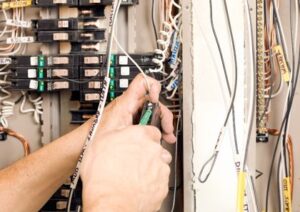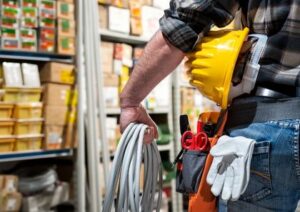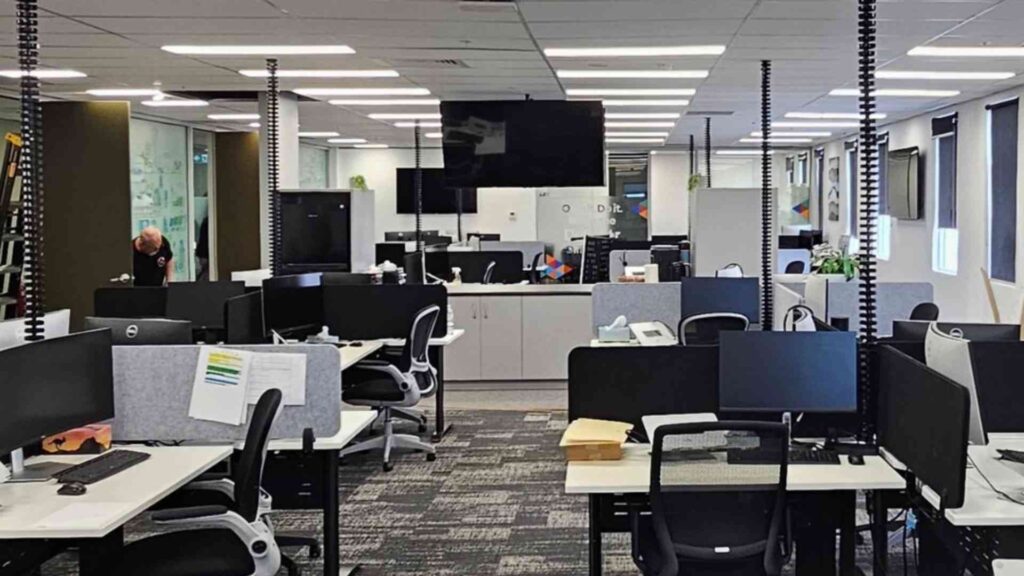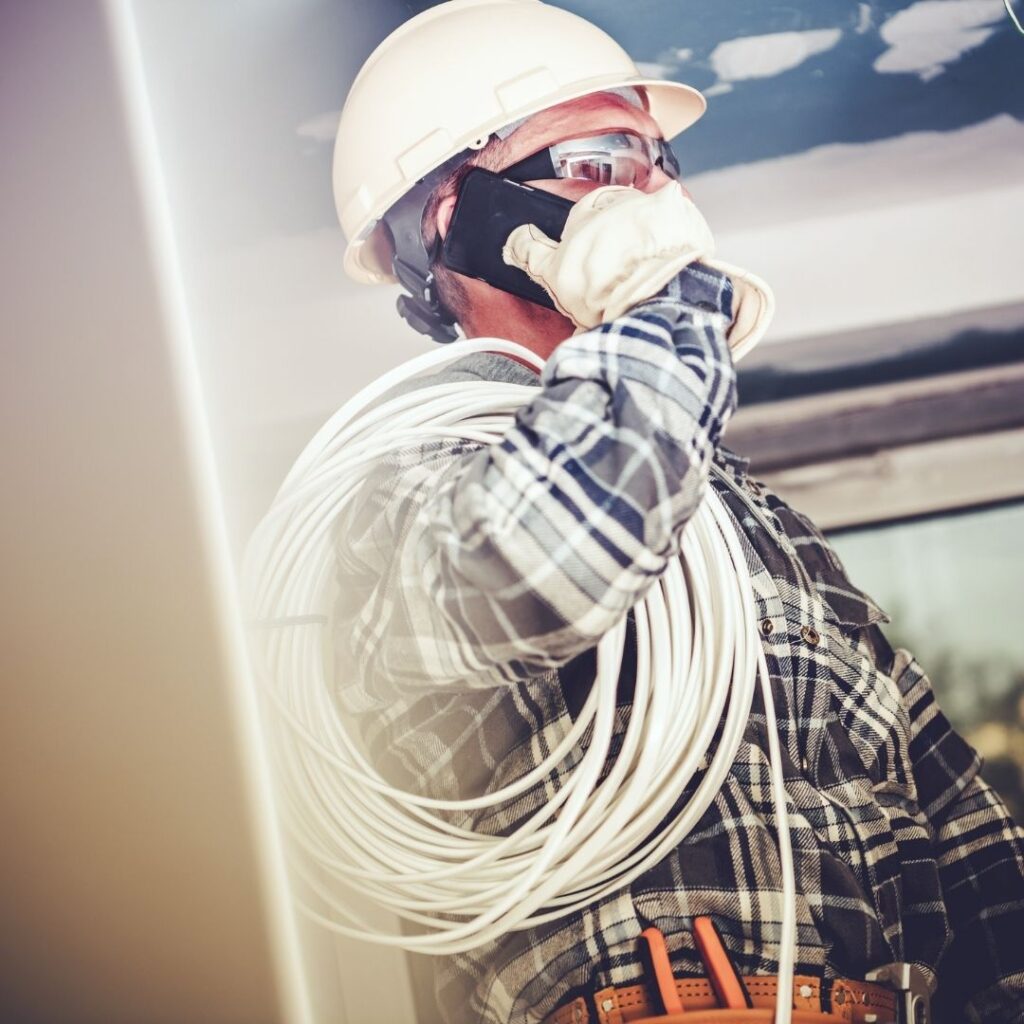Industrial electricians play a vital role in keeping manufacturing plants, factories, and industrial facilities operating safely and efficiently. Understanding industrial electrician duties helps businesses appreciate the value these professionals bring to industrial operations. This guide explores the full scope of industrial electrician responsibilities, from routine maintenance to complex system installations, and how they differ from other electrical specialties like Commercial Electrician Services.

Core Responsibilities: What Industrial Electrician Duties Include
The primary industrial electrician responsibilities focus on installing, maintaining, and repairing electrical systems in industrial settings. Unlike residential electricians who work in homes or Electrician Western Sydney professionals handling commercial buildings, industrial electricians deal with high-voltage systems, complex machinery, and specialized equipment.
Key industrial electrician duties typically include:
- Installing and maintaining motor control systems
- Troubleshooting electrical faults in production equipment
- Performing preventative maintenance on electrical systems
- Reading and interpreting electrical schematics and blueprints
- Ensuring compliance with industrial safety standards
These professionals often work closely with Level 2 Service Provider Sydney teams when projects involve connections to the main power grid.
Specialized Skills Required for Industrial Electrician Duties
Performing industrial electrician responsibilities effectively requires a unique skill set beyond standard electrical knowledge. Industrial settings demand expertise in three-phase power systems, programmable logic controllers (PLCs), and industrial instrumentation.
The most critical skills for handling industrial electrician duties include:
- Advanced knowledge of electrical theory and industrial applications
- Proficiency with motor controls and variable frequency drives
- Understanding of hydraulic and pneumatic systems
- Ability to work with high-voltage equipment safely
- Familiarity with industrial safety protocols and lockout/tagout procedures
For those considering this career path, our guide on How to Become an Industrial Electrician provides detailed information about required training and certifications.
Daily Tasks: Breaking Down Industrial Electrician Duties
A typical day performing industrial electrician responsibilities might include several critical tasks that keep industrial operations running smoothly. Morning routines often start with equipment inspections and reviewing maintenance logs to identify potential issues before they cause downtime.
Common daily industrial electrician duties include:
- Responding to emergency electrical failures in production equipment
- Conducting routine tests on electrical systems
- Replacing worn components before they fail
- Updating electrical documentation and schematics
- Coordinating with other maintenance personnel on equipment issues
Companies like Lightspeed Electricals employ teams specializing in Industrial Electrician Services to handle these critical daily operations for manufacturing clients.
Safety Considerations in Industrial Electrician Duties
Safety forms the foundation of all industrial electrician responsibilities. Industrial environments present unique hazards including high voltages, explosive atmospheres, and heavy machinery. Proper safety protocols distinguish professional industrial electricians from general electrical workers.
Essential safety aspects of industrial electrician duties include:
- Strict adherence to lockout/tagout procedures
- Proper use of personal protective equipment (PPE)
- Regular safety training updates
- Hazardous location wiring expertise
- Arc flash protection measures
Preventative Maintenance: A Key Part of Industrial Electrician Duties
Preventative maintenance represents one of the most valuable industrial electrician responsibilities, helping avoid costly unplanned downtime. Scheduled inspections and servicing keep electrical systems operating at peak efficiency while identifying potential issues before they cause failures.
Typical preventative maintenance industrial electrician duties include:
- Thermographic inspections of electrical components
- Tightening electrical connections
- Testing insulation resistance
- Lubricating motor bearings
- Cleaning electrical panels and components

Troubleshooting Complex Electrical Systems
When equipment fails, the troubleshooting skills required for industrial electrician duties become critically important. Industrial electricians must systematically diagnose electrical problems in complex systems that may involve multiple components and subsystems.
The troubleshooting process in industrial electrician responsibilities typically follows these steps:
- Gathering information about the failure
- Visually inspecting the affected equipment
- Testing electrical components systematically
- Analyzing symptoms to identify root causes
- Implementing and testing repairs
Installation and Commissioning Responsibilities
New equipment installations form another major component of industrial electrician duties. Unlike simple electrical installations, industrial equipment often requires custom configurations and integration with existing systems.
Key installation industrial electrician responsibilities include:
- Interpreting equipment specifications and electrical drawings
- Properly sizing and installing conduit and wiring
- Configuring motor controls and protection devices
- Testing and commissioning new installations
- Training operational staff on proper equipment use
For complex projects involving data systems, industrial electricians may collaborate with Data Cabler professionals to integrate network and control systems.
Documentation and Record Keeping
While often overlooked, proper documentation represents an essential part of industrial electrician duties. Maintaining accurate records helps track equipment history, comply with regulations, and streamline future maintenance.
Documentation-related industrial electrician responsibilities include:
- Updating electrical schematics after modifications
- Recording maintenance activities and test results
- Maintaining equipment service histories
- Documenting safety inspections
- Keeping inventory of critical spare parts
Working with Advanced Industrial Technologies
Modern industrial electrician duties increasingly involve working with advanced technologies that transform industrial operations. Staying current with these developments helps industrial electricians provide maximum value to their employers.
Emerging technologies impacting industrial electrician responsibilities include:
- Industrial Internet of Things (IIoT) devices
- Smart motor control systems
- Energy monitoring and management systems
- Automated production equipment
- Robotics integration
Collaboration with Other Maintenance Professionals
Effective performance of industrial electrician duties requires close collaboration with other maintenance team members. Industrial electricians often work alongside mechanical technicians, instrumentation specialists, and production staff.
Key collaborative industrial electrician responsibilities include:
- Coordinating shutdowns for electrical work
- Assisting with equipment troubleshooting
- Participating in root cause analysis
- Contributing to continuous improvement initiatives
- Supporting equipment upgrades and modifications
Continuous Learning and Professional Development
Given the evolving nature of industrial technology, ongoing learning forms a critical part of industrial electrician duties. Professional industrial electricians commit to continuous skills development throughout their careers.
Learning-related industrial electrician responsibilities include:
- Attending manufacturer training sessions
- Studying updated electrical codes
- Learning new equipment technologies
- Obtaining additional certifications
- Sharing knowledge with colleagues
The Future of Industrial Electrician Duties
As industries evolve, industrial electrician responsibilities continue to expand and change. Emerging trends are reshaping what industrial electricians do and how they perform their work.
Future directions for industrial electrician responsibilities include:
- Increased focus on energy efficiency
- Greater integration of smart technologies
- More predictive maintenance approaches
- Enhanced safety technologies
- Growing renewable energy applications
For businesses needing professional support with these evolving industrial electrician responsibilities, Lightspeed Electricals provides comprehensive Industrial Electrician Services to meet modern industrial challenges.

Conclusion: The Critical Importance of Industrial Electrician Duties
From maintaining essential equipment to implementing cutting-edge technologies, industrial electrician responsibilities form the backbone of reliable industrial operations. These skilled professionals combine technical expertise with safety knowledge to keep facilities running efficiently while protecting both equipment and personnel.
Understanding the full scope of industrial electrician responsibilities helps businesses appreciate the value these specialists bring to their operations. Whether through preventative maintenance, emergency repairs, or system upgrades, industrial electricians play an indispensable role in modern manufacturing and production environments.


